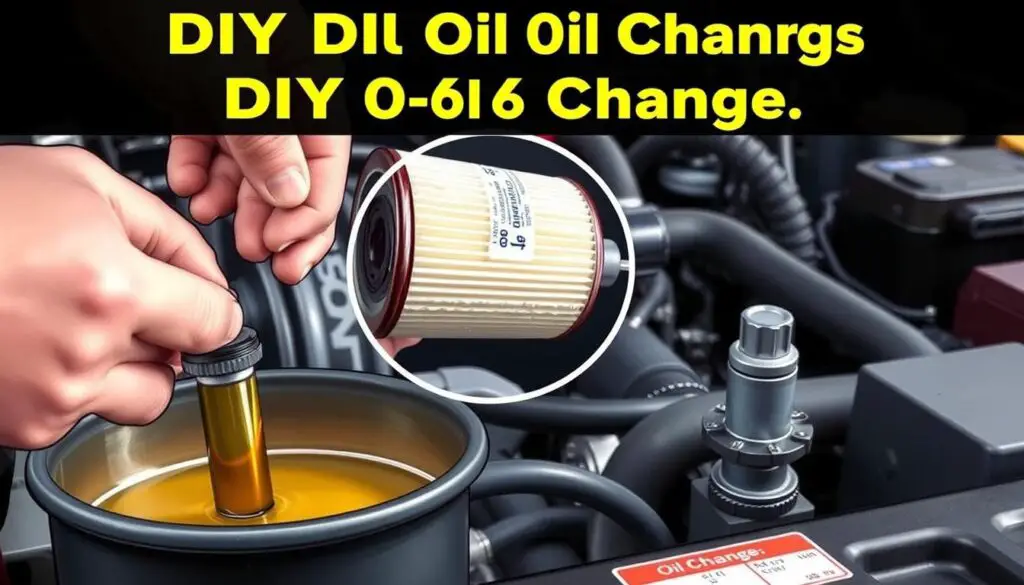The 2008 Ford F150 4.6L engine requires the correct oil capacity and type to function optimally. Using the right oil is crucial for the longevity and performance of the vehicle.
Maintaining the correct oil level is vital to prevent engine damage and ensure smooth operation. The correct oil type and capacity also impact the vehicle’s fuel efficiency and overall performance.
This article will provide a comprehensive guide on the oil capacity and recommended oil type for the 2008 Ford F150 4.6L engine.
Key Takeaways
- Understanding the importance of correct oil capacity and type for the 2008 Ford F150 4.6L engine.
- Identifying the recommended oil type for optimal performance.
- Learning how to check and maintain the correct oil level.
- Understanding the impact of oil capacity on engine performance.
- Finding the correct oil capacity for the 2008 Ford F150 4.6L engine.
Understanding Your 2008 Ford F150 4.6L Engine
To keep your 2008 Ford F150 running smoothly, it’s essential to understand its 4.6L engine specifications. The 4.6L V8 engine, part of the Triton V8 family, is known for its balance of power and efficiency.
Engine Specifications and Performance
The 4.6L engine produces 248 horsepower and 293 lb-ft of torque, making it suitable for a variety of tasks, from daily driving to towing. Its performance is enhanced by a multi-valve configuration and a robust design.
The Triton V8 Design Features
The Triton V8 design incorporates several key features, including a single overhead camshaft and three valves per cylinder. This design contributes to the engine’s efficiency and power output.
| Engine Attribute | Specification |
|---|---|
| Horsepower | 248 |
| Torque | 293 lb-ft |
| Cylinder Configuration | V8 |
2008 Ford F150 4.6 Oil Capacity and Oil Type Guide
Maintaining the 2008 Ford F150 4.6L engine involves more than just regular oil changes; it requires the correct oil capacity and type. Understanding these specifications is crucial for ensuring the longevity and performance of your vehicle.
Total Oil Capacity Specifications
The total oil capacity for the 2008 Ford F150 4.6L engine is approximately 6 quarts (5.7 liters) when the oil filter is changed. It’s essential to refer to your owner’s manual or consult with a professional mechanic to confirm the exact capacity for your specific vehicle configuration.
Oil Filter Capacity and Recommendations
For the 2008 Ford F150 4.6L engine, the recommended oil filter is the Motorcraft FL-1S or equivalent. The oil filter capacity is typically around 0.5 quarts (0.47 liters), but this can vary slightly based on the filter brand and type.
| Engine Type | Total Oil Capacity | Oil Filter Type |
|---|---|---|
| 4.6L V8 | 6 quarts (5.7 liters) | Motorcraft FL-1S |
Always check your owner’s manual for the most accurate information regarding oil capacity and filter recommendations.
Manufacturer Recommended Oil Types
When it comes to maintaining your 2008 Ford F150 4.6L engine, understanding the manufacturer’s recommended oil types is crucial. The right oil can significantly impact your vehicle’s performance, fuel efficiency, and overall lifespan.
Ford’s Official Oil Specifications
Ford specifies that the 2008 F150 4.6L engine should use oil that meets the WSS-M2C930-A or WSS-M2C947-B specifications. These specifications ensure that the oil used provides the necessary lubrication and protection for the engine’s components.
Synthetic vs. Conventional Oil Benefits
The debate between synthetic and conventional oil has been ongoing. Synthetic oil offers superior performance in extreme temperatures, better lubrication, and potentially longer oil change intervals. On the other hand, conventional oil is more cost-effective and still provides adequate engine protection for most drivers.
| Oil Type | Benefits |
|---|---|
| Synthetic Oil | Better performance in extreme temperatures, improved lubrication, potentially longer oil change intervals |
| Conventional Oil | Cost-effective, adequate engine protection for most driving conditions |
Recommended Viscosity Ratings
Viscosity rating is another critical factor. For the 2008 F150 4.6L, Ford recommends using oil with a viscosity rating of 5W-20. This rating provides a balance between fuel efficiency and engine protection across a wide range of temperatures.
Understanding and adhering to these recommendations can help maintain your vehicle’s health and ensure it runs efficiently for years to come.
Oil Change Intervals for the 2008 F150 4.6L
Understanding the optimal oil change intervals for your 2008 Ford F150 4.6L engine is crucial for maintaining its performance and longevity. Regular oil changes help to lubricate the engine, reduce wear and tear, and prevent damage from dirt and debris.
Standard Service Intervals
Ford recommends changing the oil every 5,000 to 7,500 miles under normal driving conditions. However, this interval can vary depending on several factors, including driving habits and environmental conditions.
| Driving Conditions | Oil Change Interval |
|---|---|
| Normal | 5,000 – 7,500 miles |
| Severe | 3,000 – 5,000 miles |
Severe Driving Condition Adjustments
If you drive in severe conditions, such as extreme temperatures, towing, or frequent stop-and-go traffic, you may need to change your oil more frequently. Severe driving conditions can cause the oil to degrade faster, reducing its effectiveness in lubricating the engine.
Oil Life Monitoring System Explained
The 2008 F150 4.6L engine is equipped with an Oil Life Monitoring System, which tracks the oil’s condition and alerts you when an oil change is necessary. This system takes into account various factors, including driving habits and conditions, to provide a more accurate estimate of the oil’s remaining life.
Warning Signs Your F150 Needs an Oil Change
Understanding the indicators that signal the need for an oil change can help prevent engine damage in your 2008 Ford F150. Regular oil changes are crucial for maintaining the health and performance of your vehicle’s engine.
Dashboard Indicator Lights
One of the most straightforward warning signs is the dashboard indicator lights. Modern vehicles like the 2008 F150 are equipped with sophisticated monitoring systems that track engine oil levels and condition. If the oil level is low or the oil is degraded, the oil change indicator light will illuminate on your dashboard, signaling that an oil change is necessary.
Engine Performance Changes
A decrease in engine performance can also be a sign that your F150 needs an oil change. Dirty or degraded oil can lead to reduced engine efficiency, causing symptoms such as decreased power output, rough idling, or hesitation during acceleration.
Visual and Auditory Warning Signs
Besides dashboard lights and performance changes, there are other visual and auditory cues to watch out for. For instance, if you notice unusual oil leaks under your vehicle or hear unusual engine noises like knocking or clunking, it may indicate that your oil level is low or your oil is dirty.
Being vigilant about these warning signs can help you stay on top of your vehicle’s maintenance needs, ensuring your 2008 F150 continues to run smoothly and efficiently.
DIY Oil Change Procedure for the 4.6L Engine
With the right guidance, DIY oil change for the 4.6L Ford F150 engine is a simple and cost-effective maintenance task. This process not only saves you money but also gives you a deeper understanding of your vehicle’s engine.
Required Tools and Materials
Before you start, ensure you have the following:
- Socket wrench or ratchet and socket
- Oil drain pan
- New oil filter
- Oil filler cap
- New motor oil (the correct type and amount for your vehicle)
Step-by-Step Oil Change Process
Follow these steps to change your oil:
- Warm up your engine, then find a level surface to park on.
- Locate the oil drain plug underneath your F150 and remove it using a socket wrench.
- Drain the oil into a pan, then replace the drain plug.
- Remove the old oil filter and install a new one.
- Refill the engine with the recommended type and amount of new oil.

Oil Filter Replacement Tips
When replacing the oil filter, make sure to:
- Tighten the new filter by hand to avoid stripping the threads.
- Check the filter for any signs of damage or leaks.
Proper Disposal of Used Oil
Used oil should be disposed of at a recycling center or an auto parts store that accepts used oil. Never dispose of it in the trash or down the drain.
| Material | Disposal Method |
|---|---|
| Used Oil | Recycling Center or Auto Parts Store |
| Used Oil Filter | Recycling Center or Designated Waste Facility |
Common Oil-Related Issues in the 2008 F150
The 2008 Ford F150 with a 4.6L engine can experience several oil-related issues that owners should be aware of. These issues can significantly impact the vehicle’s performance and longevity if not addressed promptly.
Oil Consumption Patterns
One common issue is excessive oil consumption. The 2008 F150’s 4.6L engine may burn oil at a higher rate than expected, leading to frequent top-ups between oil changes. Monitoring oil levels regularly can help identify this problem early on.
Identifying and Fixing Oil Leaks
Oil leaks are another prevalent issue. Common areas for leaks include the valve cover gasket and oil pan gasket. Inspecting the engine regularly for signs of leakage can help in addressing the problem before it causes significant damage.
Long-Term Effects of Improper Oil Maintenance
Failing to maintain proper oil levels and change oil regularly can lead to serious engine damage over time. This includes increased wear on engine components, potentially resulting in costly repairs or even engine failure.
Regular maintenance and prompt attention to oil-related issues are crucial for the longevity of the 2008 F150’s 4.6L engine.
Conclusion
Proper oil maintenance is crucial for the longevity and performance of your 2008 Ford F150 4.6L engine. As discussed, understanding the correct oil capacity and type is essential for optimal engine function.
To keep your vehicle running smoothly, adhere to the recommended oil type guide and oil capacity specifications. Regular oil changes, as outlined in the manufacturer’s guidelines, will help prevent engine wear and tear.
By following the 2008 Ford F150 4.6L maintenance schedule and using the correct oil, you can ensure your engine remains in good condition. This not only enhances performance but also contributes to the overall lifespan of your vehicle.
Regular checks and maintenance will help identify potential issues early, allowing for timely interventions. This proactive approach to vehicle care is key to maintaining your F150’s reliability and efficiency.
FAQ
What is the oil capacity of the 2008 Ford F150 4.6L engine?
The oil capacity for the 2008 Ford F150 4.6L engine is approximately 6 quarts, including the oil filter.
What type of oil is recommended for the 2008 Ford F150 4.6L engine?
Ford recommends using 5W-20 motor oil that meets the Ford WSS-M2C930-A specification for the 2008 F150 4.6L engine.
Can I use synthetic oil in my 2008 Ford F150 4.6L engine?
Yes, synthetic oil can be used in the 2008 Ford F150 4.6L engine. Ford recommends using synthetic 5W-20 oil that meets the WSS-M2C930-A specification for optimal performance.
How often should I change the oil in my 2008 Ford F150 4.6L engine?
Ford recommends changing the oil every 5,000 to 7,500 miles, depending on driving conditions. The oil life monitoring system will also indicate when an oil change is necessary.
What are the signs that my 2008 Ford F150 needs an oil change?
Signs that your F150 needs an oil change include the oil life monitoring system indicator, dashboard warning lights, decreased engine performance, and unusual engine noises.
Can I perform an oil change on my 2008 Ford F150 4.6L engine myself?
Yes, you can perform an oil change on your 2008 Ford F150 4.6L engine yourself. You’ll need to gather the necessary tools and materials, follow a step-by-step guide, and properly dispose of the used oil.
What are the consequences of not maintaining the recommended oil type and capacity in my 2008 Ford F150 4.6L engine?
Failing to maintain the recommended oil type and capacity can lead to decreased engine performance, increased oil consumption, and potentially cause long-term damage to the engine.



